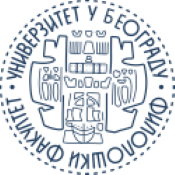Portuguese Folktales and the Politics of Subversion
DOI:
https://doi.org/10.18485/beoiber.2019.3.1.5Abstract
Folktales are not only a rich repository of the collective imaginary and of the social myths of a community, but they also harbor the political and social tensions that have marked the history of nations. Such tensions usually veiled under the guise of symbols and other forms of literary representation end up weaved into narratives that voice the common man’s yearning for justice and empowerment. This paper attempts to draw a parallel between some of the Portuguese folktales and one of the most important 15th-century historiographic accounts, Crónica de D. Joāo I – written by royal chronicler Fernão Lopes, dubbed Portugal’s first historian – where, in his quest for the truth, the “people” acquire narrative density and challenge the powers that be. The conceptual framework for this comparative study draws on Fredric Jameson’s notion of political unconscious, according to which texts are to be regarded as political fantasies, resulting mainly from repression and contradicted impulses. Two examples of folktales where these tensions are resolved to the benefit of the common man are provided.Key words: folktales, historical chronicles, Portuguese medieval history, political unconscious, social empowerment.References
Barnes, W. J. Portugal Gateway to Greatness. Vancouver: Read Books, 2006. Print.
Brenner, Robert. «The Rises and Declines of Serfdom in Medieval and Early Modern Europe». Michael L. Bush (ed.), Serfdom and Slavery: Studies in Legal Bondage, London: Longman, 1996: 247–76. Print.
Comninel, Gorge. Feudalism and the Origins of Capitalism. Toronto: York University, Department of Political Science, 1992. Unpublished manuscript.
Ferreira, Maria Ema Tarracha (ed.) Crónicas de Fernão Lopes [The Chronicles of Fernão Lopes]. Lisbon: Ulisseia, 1988. Impresso.
Gomes Ferreira, José. Contos Tradicionais Portugueses, Lisbon: Iniciativas Editoriais, 1977. Impresso.
Herculano, Alexandre. Opúsculos, Tomo 5. Lisbon: Bertrand, 1886. Impresso.
Hilton, Rodney. Bond Men Made Free: Medieval Peasant Movements and the English Rising of 1381. London: Routledge, 1988. Print.
Jack, Malcolm. Lisbon, city of the sea: a history. London: Tauris, 2007. Print.
Jameson, Fredric. The Political Unconscious: Narrative as a Socially Symbolic Act. New York: Cornell University Press, 1981. Print.
Teschke, Benno. «Geopolitical Relations in the European Middle Ages: History and Theory». International Organization, 52.2 (Spring 1998): 325–358. Print.
Brenner, Robert. «The Rises and Declines of Serfdom in Medieval and Early Modern Europe». Michael L. Bush (ed.), Serfdom and Slavery: Studies in Legal Bondage, London: Longman, 1996: 247–76. Print.
Comninel, Gorge. Feudalism and the Origins of Capitalism. Toronto: York University, Department of Political Science, 1992. Unpublished manuscript.
Ferreira, Maria Ema Tarracha (ed.) Crónicas de Fernão Lopes [The Chronicles of Fernão Lopes]. Lisbon: Ulisseia, 1988. Impresso.
Gomes Ferreira, José. Contos Tradicionais Portugueses, Lisbon: Iniciativas Editoriais, 1977. Impresso.
Herculano, Alexandre. Opúsculos, Tomo 5. Lisbon: Bertrand, 1886. Impresso.
Hilton, Rodney. Bond Men Made Free: Medieval Peasant Movements and the English Rising of 1381. London: Routledge, 1988. Print.
Jack, Malcolm. Lisbon, city of the sea: a history. London: Tauris, 2007. Print.
Jameson, Fredric. The Political Unconscious: Narrative as a Socially Symbolic Act. New York: Cornell University Press, 1981. Print.
Teschke, Benno. «Geopolitical Relations in the European Middle Ages: History and Theory». International Organization, 52.2 (Spring 1998): 325–358. Print.
Downloads
Published
2019-05-26
How to Cite
Bernardo Lopes, A. M. “Portuguese Folktales and the Politics of Subversion”. BEOIBERÍSTICA - Journal of Iberian, Latin American and Comparative Studies (ISSN: 2560-4163 Online), vol. 3, no. 1, May 2019, pp. 71-79, doi:10.18485/beoiber.2019.3.1.5.
Issue
Section
CULTURAL DIALOGUE
License
Authors who publish with this journal agree to the following terms:
- Authors retain copyright and grant the journal right of first publication with the work simultaneously licensed under a Creative Commons Attribution-ShareAlike 4.0 International License that allows others to share the work with an acknowledgement of the work's authorship and initial publication in this journal.
- Authors are able to enter into separate, additional contractual arrangements for the non-exclusive distribution of the journal's published version of the work (e.g., post it to an institutional repository or publish it in a book), with an acknowledgement of its initial publication in this journal.
- Authors are permitted and encouraged to post their work online (e.g., in institutional repositories or on their website) prior to and during the submission process, as it can lead to productive exchanges, as well as earlier and greater citation of published work (See The Effect of Open Access).













